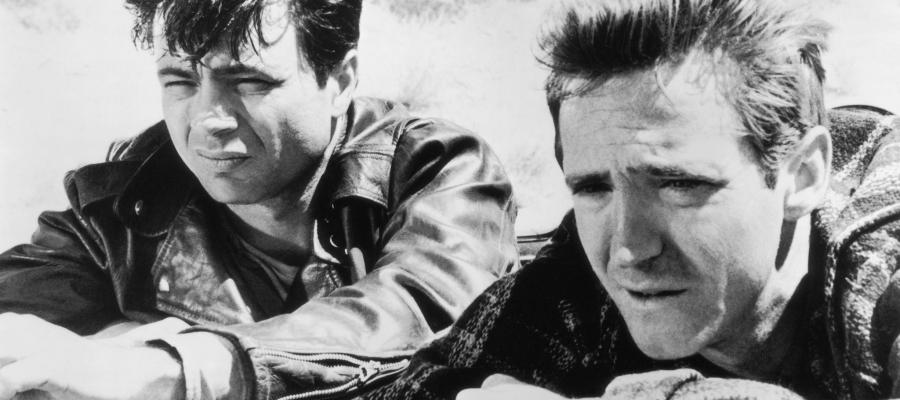The Willing Suspension of Disbelief
Oct 18, 2005Why don't we run out of the movie theatre when a monster shows on the screen? What kind of mental state is the willing suspension of disbelief?

When The Old Curiosity Shop was approaching its emotional climax -- the death of Little Nell -- Dickens was inundated with letters imploring him to spare her, and felt, as he said, "the anguish unspeakable," but proceeded with the artistically necessary event. Readers were desolated. The famous actor William Macready wrote in his diary that "I have never read printed words that gave me so much pain. . . . I could not weep for some time. Sensations, sufferings have returned to me, that are terrible to awaken." Daniel O'Connell, the great Irish member of Parliament, read the account of Nell's death while he was riding on a train, burst into tears, cried "He should not have killed her," and threw the novel out of the window in despair. Even Carlyle, who had not previously succumbed to Dickens's emotional manipulation, was overcome with grief, and crowds in New York awaited a vessel newly arriving from England with shouts of "Is Little Nell dead?"
David Cody, from his website on Dickens' popularity
I read somewhere that when the boat with the latest installment of The Old Curiosity Shop arrived in New York, there was a crowd a block deep waiting to find out what happened to Little Nell. Those closest to the boat found out that she had died, and as the message filtered back through the crowd a visible wave of horror and despair followed, with people breaking down in tears.
So great is the grip of fiction on our emotions. Did these people think that Little Nell was real? Not at all. they knew it was fiction by the great writer Dickens; why else would they blame him for killing her? That is the puzzling thing we will confront in the next installment of philosophy talk: the grip that fiction, and other forms of art, have on our emotions, even when we know the people and events they depict are not real.
I saw the movie "Capote" the other day . I thought it was excellent. Stanford grad Phillip Seymour Hoffman plays Truman Capote. I've been a fan of his since his days in the little theatre up in the attic of Memorial Auditorium.
The relevance of this to the current topic is Capote's "non-fiction novel," In Cold Blood. Capote invented the non-fiction novel, where actual events are described with all of the tricks of the novel-writers' craft. The event depicted is the murder of the Clutter family, on farm on the outskirts of a small town in western Kansas, in 1959. I lived in Lincoln, Nebraska at the time, where just a year or so before Charles Starkweather, who had been my brother's classmate at Irving Junior High School, went on his famous rampage, killing ten or elevant people over a couple of days. I suppose in today's world a serial killer who doesn't make it to a dozen, or a simple murder of a family in Kansas, would hardly make the front page of the New York Times, as the Clutter murder did. Still, in the great plains, these events were well-known.
A few years later, when I read In Cold Blood, I was much more affected by the Clutters' murders, as described there, than I had been at the time. I was even more affected than I had been by the Starkweather murders, even though two of them were people I had met at church, and another was a client of my father whose farm I had visited. Well, maybe that's not surprising, because Capote was a gifted writer, and his description of the Clutter murders was more detailed and personal than the accounts in the papers. But the interesting thing is that I don't believe I was any more affected in reading about those murders than I have been, hundreds of times, reading about murders I know to be pure fiction. What Husserl (to bring in a little philosophy) would call the thetic aspect of the thoughts Capote's descriptions aroused in me, that is, the fact that they were put forward and taken by me to be to be descriptions of real happenings, didn't have much to do at all with my reactions.
In reading about the Clutters' my belief that it happened wasn't all that relevant to my emotions. But why doesn't the fact that we know that The Old Curiosity Shop is fiction get in the way of having the full complement of emotions appropriate to the death of an innocent child when we read about Little Nell? How can such emotional impact co-exist with disbelief in the events we are reading about?
A phrase that suggests an answer to this is "the willing suspension of disbelief". What does it come to? And what relevance does it have it realms beyond fiction? These are some of the questions we'll discuss Tuesday on Philosophy Talk: Art and the suspension of disbelief.
Comments (1)
Guest
Saturday, October 29, 2005 -- 5:00 PM
I believe that this is a good model for many peoplI believe that this is a good model for many people's belief in God and/or religion. Intelligent people sometimes (or some intelligent people?) read the Bible with a "willing suspension of disbelief", or apply this sort of attitude to religious teachings in general. It is not that they really and truly belief (literally) what is said, but while they are reading or entertaining the ideas they are not exactly rejecting the propositional content. There is somthing akin to the "willing suspension of disbelief" one finds when one is at a play or reading a novel.